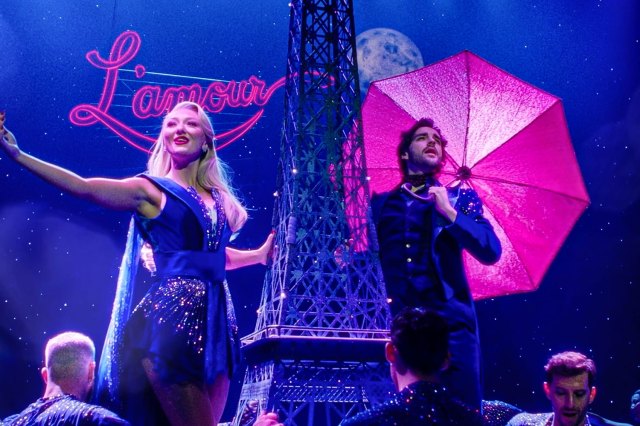Review: Pops (Assembly Roxy, Edinburgh)
Sophie Melville and Nigel Barrett star in this piece from Charlotte Josephine

© The Other Richard
Dealing with addiction is no simple thing, so it's entirely apt that Charlotte Josephine's new piece plays with form, language and time to represent it. There's no linear structure to Pops, which progresses in cycles. Beginnings, endings, middles all get jumbled up together.
It artfully represents what is a constant and unending battle, here faced by a father and daughter. Nothing is ever explicit in the piece, which leaves the details of the addictions out in order to focus on the mundanity, the frustration and the repetition. It's not an easy hour, no, but it is beautifully performed by Sophie Melville and Nigel Barrett and brilliantly written by Josephine.
It begins with a father putting out a chair with a cushion for the arrival of his daughter. When she gets there, she doesn't sit down, and neither do they really talk, as he has the TV on loud and insists on listening to music at the same time. The lack of communication is a recurring symptom – platitudes and phrases crop up like "Hi Love" and "sit down" but nothing is ever really said.
The cycles do break, like when the two smile, breathe and take time to have a cup of tea together. It's a little window of possibility for them, a momentary oasis which is otherwise surrounded by their rage, sadness and inaction. Occasionally each of them will talk out to the audience, voicing what they think about the other. But they never manage to say it to each other.
Melville is a remarkable performer – she convinced us of that in Iphigenia in Splott – and here her talent is fully on display again. The tiny flickers around her eyes, the up or downturn of her lips are an incredibly accurate display of the pain her character is feeling. And Barrett is an excellent foil. At times, it feels as though you are trespassing on two wretched unhappy lives.
The father and daughter's inertia and stagnation is palpable but when Melville turns to us to explain how she finds her father 'like a beached whale' on the tiles of the kitchen floor every Sunday morning, you begin to realise how helpless they both are to fix anything. Josephine has created something that feels unhappily, awfully, real.

















